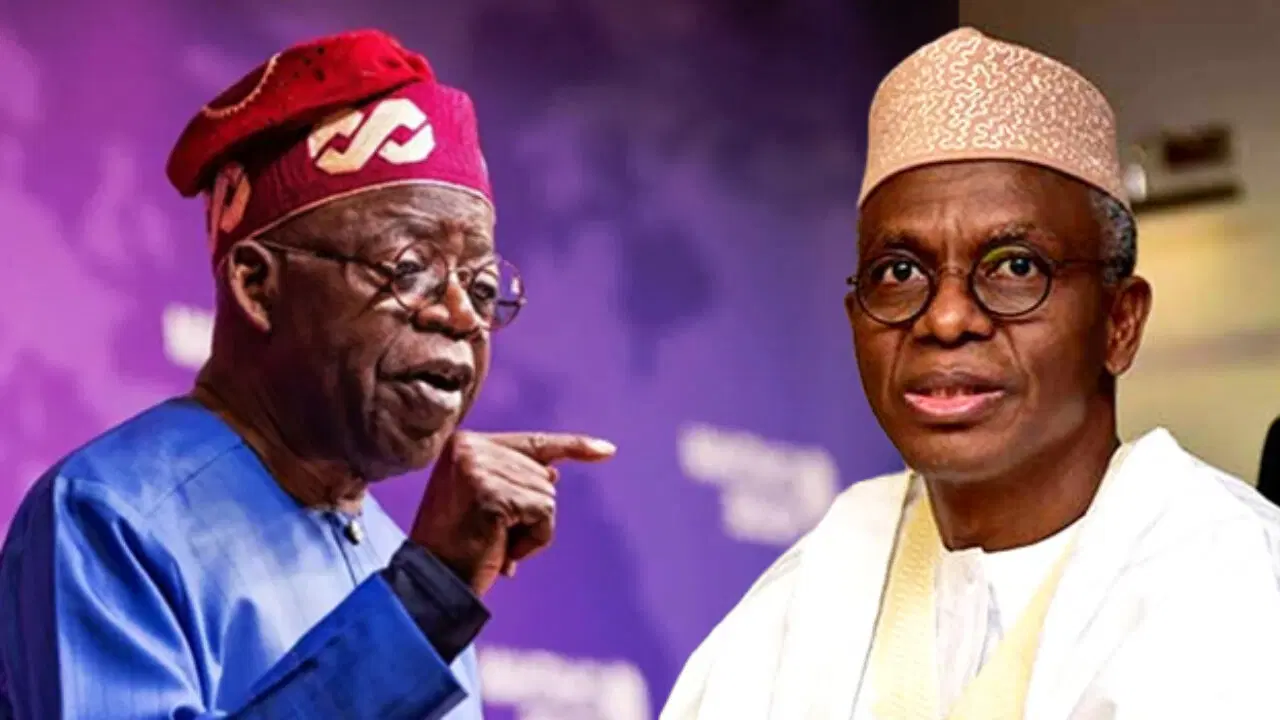Africa
Why Is El-Rufai Always Attacking Tinubu? Is It Because He Is Not In Tinubu’s Government? -By Isaac Asabor
El-Rufai is not fighting for Nigerians. He is fighting for Nasir El-Rufai. He is merely thriving on betrayal, and coming across as a man whose loyalty lasts only as long as his relevance. His attacks on Tinubu are not warnings for democracy; they are rehearsals for his own comeback.

Mallam Nasir El-Rufai, former governor of Kaduna State, has once again unleashed his political bazooka, this time at President Bola Ahmed Tinubu. His latest outburst, likening Tinubu to Paul Biya of Cameroon, is not just criticism. It is a calculated insult designed to undermine the president and stoke public fear. And Nigerians are right to ask: why is El-Rufai always attacking Tinubu? Is it because he is genuinely concerned for democracy, or because he is sulking after being sidelined from Tinubu’s government?
Comparing Tinubu to Paul Biya, a man who has ruled Cameroon for over 40 years, and turned it into a decaying dictatorship, is no slip of tongue. It was a deliberate attempt to brand Tinubu as an authoritarian monster in the making. It is the language of an angry politician, not a patriot.
El-Rufai knows what such a comparison means in a country already grappling with democratic fatigue. He knows it will trend, it will sting, and it will feed opposition narratives. But he also knows it will raise his own profile as the “courageous” insider willing to speak against the throne.
Let us not pretend this is about democracy. El-Rufai’s record betrays him. When Tinubu removed fuel subsidy and floated the naira, El-Rufai pounced, declaring the hardship unbearable. But this same El-Rufai supported subsidy removal in the past, loudly advocating “bold reforms” when it suited his politics.
When Tinubu struggled with insecurity, El-Rufai suddenly became a self-declared expert, conveniently forgetting that under his watch Kaduna became one of the hotbeds of banditry. If Tinubu has failed, what then was El-Rufai’s eight-year report card?
When Tinubu formed his cabinet, El-Rufai was penciled down for a powerful ministerial role. But once his nomination collapsed under “security concerns,” the knives came out. Since then, his criticisms have not stopped. Nigerians are not fools, they can connect the dots.
This is the hypocrisy: El-Rufai is loudest when he is outside the circle of power. Inside, he is silent, loyal, and calculating. Outside, he suddenly remembers democracy, accountability, and the suffering of the people.
Without any scintilla of doubt, El-Rufai has a track record of betrayal. For instance, he was Obasanjo’s golden boy as FCT Minister, until he turned on him, and in another political dispensation, he enjoyed Yar’Adua’s government until he claimed persecution and ran abroad. In a similar vein, he attacked Jonathan with venom, branding him weak and incompetent and even Buhari, his supposed political father, did not escape his sharp tongue.
Without resorting to denigrating his person in this context, it is not out of place to assert that El-Rufai’s attacks on Tinubu are not new, and that they are part of his political DNA. He has done this before:
Now it is Tinubu’s turn. The cycle is familiar: align with power, take what you can, then stab from behind when ambition or ego is bruised.
This is not about conviction. It is about El-Rufai’s restless ambition, his refusal to play second fiddle to anyone, and his obsession with being seen as the smartest man in the room.
Let us be honest: El-Rufai is not merely “speaking truth to power.” He is calculating. Every insult, every barb, every warning about Tinubu is a brick in the wall of his 2027 ambition. By painting Tinubu as Nigeria’s Paul Biya, he is positioning himself as the anti-Tinubu, the man who “saw it coming” and dared to speak.
But Nigerians must not fall for this charade. When El-Rufai ruled Kaduna, he was accused of intolerance, high-handedness, and silencing dissent. Does that sound like a democrat? He is attacking Tinubu for the same sins he himself committed. It is hypocrisy wearing the cloak of activism.
So, why is El-Rufai always attacking Tinubu? The answer is simple: because he is not in Tinubu’s government. If he had been sworn in as minister, Nigerians would not be hearing this daily barrage of criticism. He would be in Abuja, smiling for cameras, defending the same policies he now trashes.
El-Rufai is not fighting for Nigerians. He is fighting for Nasir El-Rufai. He is merely thriving on betrayal, and coming across as a man whose loyalty lasts only as long as his relevance. His attacks on Tinubu are not warnings for democracy; they are rehearsals for his own comeback.
Nigerians must see through this game. Tinubu may have his flaws, but El-Rufai is not the moral compass of Nigerian politics. He is simply a bitter politician locked outside the corridors of power, banging on the gates and calling it “truth.”
























